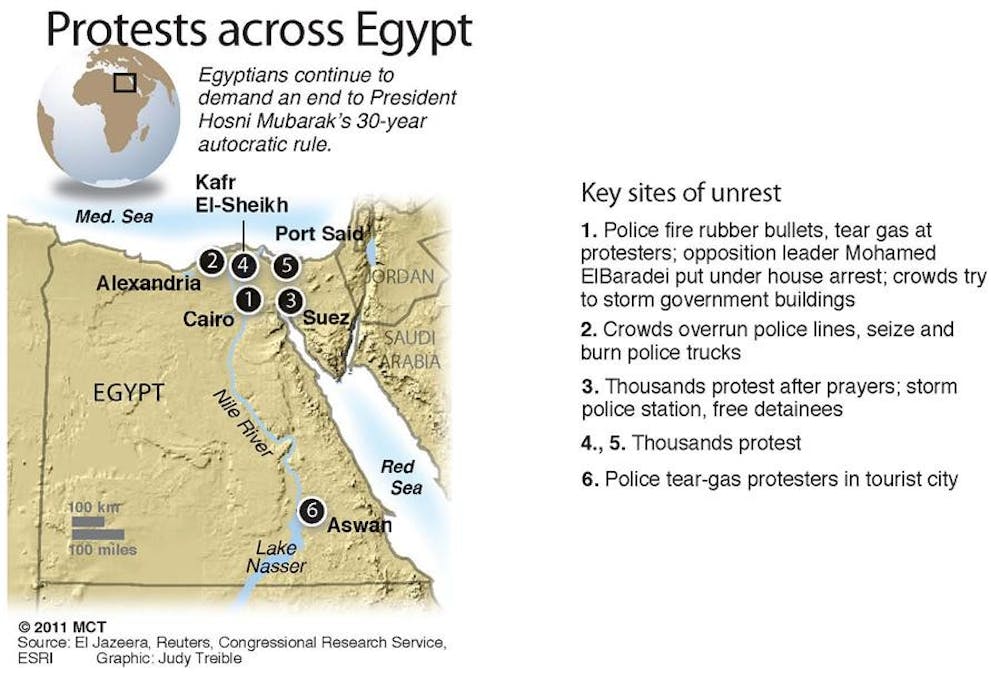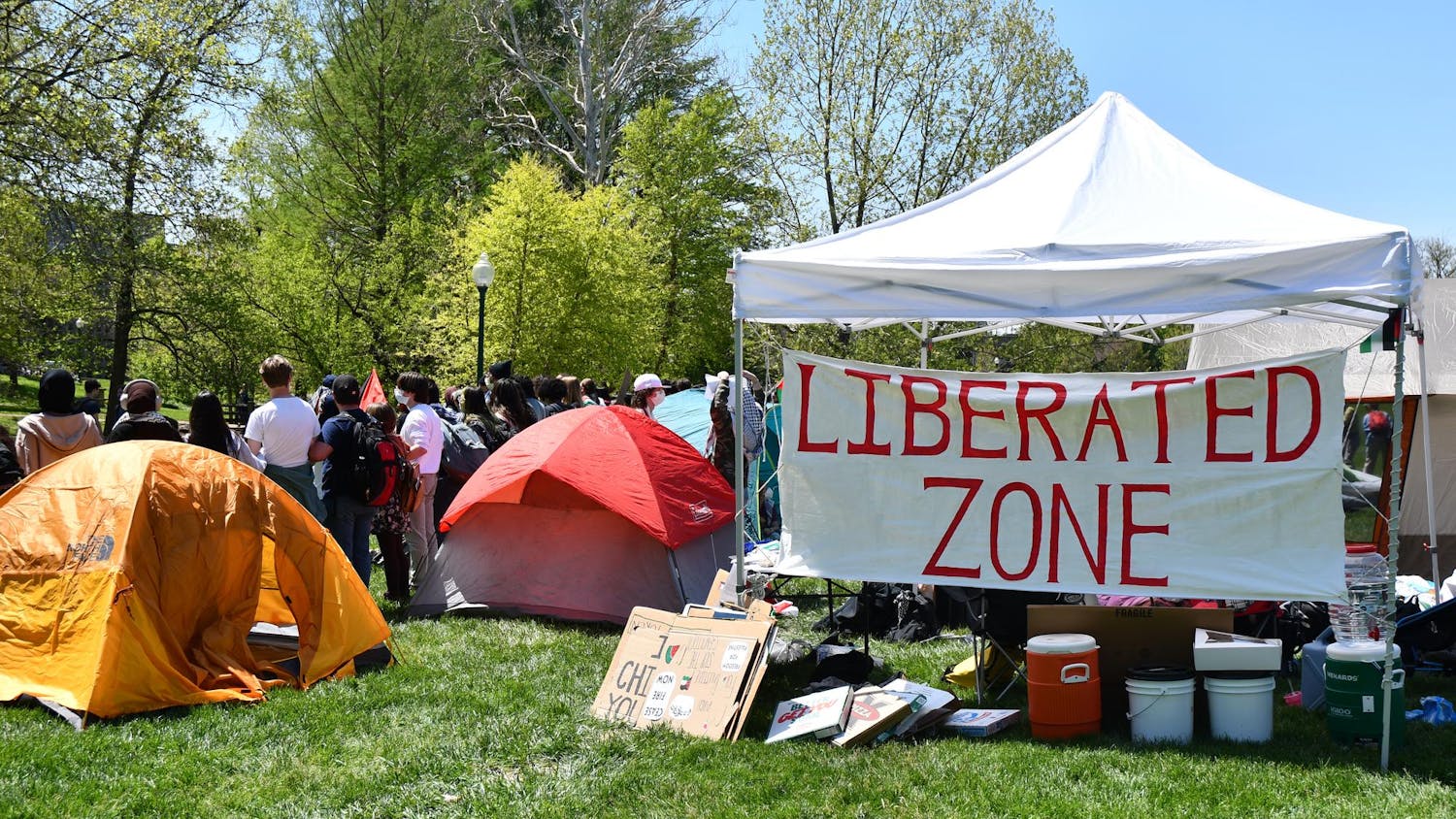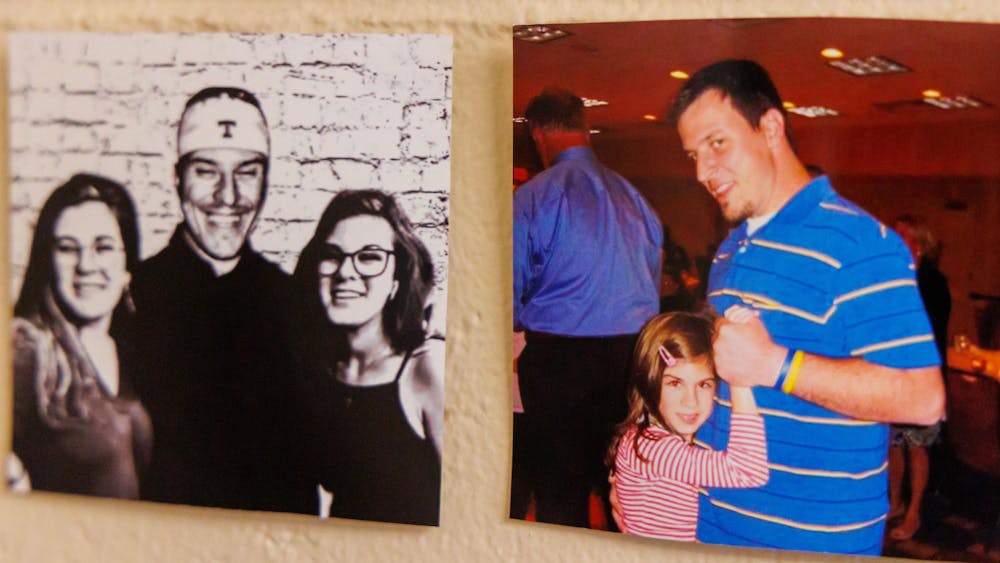While chaos broke out in Cairo as Egyptians demanded a change in government, Ahmed Kadous prayed for his country Friday in the quiet Islamic Center of Bloomington.
Kadous faced Mecca, toward home, and prayed.
“I was crying today, really, I was crying,” he said. “Most of Egyptian people have a loyalty to Egypt. You grew up there. You grew up beside the Nile. It’s my feeling for the crowds. I miss the crowds.”
Kadous, who was born in Egypt, is the manager of a company in Cairo that works with cooking oils and is currently studying for an MBA at the Kelley School of Business.
Since early last week, Egyptians have taken to the streets across Egypt to protest President Hosni Mubarak. The protests grew exponentially after Friday morning prayers.
Kadous, 22, has been living in Bloomington for two months, but still has strong ties to Egypt. He’s been following the news online on CNN, Al Jazeera and The New York Times. Last week a professor asked Kadous about the problems facing Egypt, but he said he couldn’t begin to explain the situation.
“I’m frustrated by the problems,” he said.
Junior Lee Thomas was on her way to Cairo to begin her second semester studying abroad at American University in Cairo when the protests erupted.
Her flight was a canceled and shortly after she received a call from the Office of Overseas Study at IU warning her of the dangers in Egypt.
The Office of Overseas Study has a policy that when the U.S. Department of State places a travel advisory or travel warning on a country, decisions are quickly made to cancel programs in dangerous areas.
Although this doesn’t happen often, Kathleen Sideli, the associate vice president for Overseas Study, said plans are in place to protect students.
“We have a committee that looks at greater level of security plans and arrangements before deciding if students can go to a city in a country under a travel warning,” she said.
Sideli said when the University decides to pull support for a program, all financial assistance and organizational support is pulled.
Thomas, a journalism student, said she wanted to return to Cairo by the end of the week, but is watching the news to see when the protests settle down. She has already paid and registered for her classes and hopes to return as soon as possible.
Sunday Lee said she was notified she would not be able to travel to Egypt any time soon.
“I am really excited. I’m waiting to get back,” she said. “I’m totally bummed I can’t be there."
Director of the Center for the Study of the Middle East at IU Feisal Istrabadi said the tensions in Egypt have been rising for many years.
“There’s been a tendency to see this as a reaction to Tunisia, and I would warn against that,” Istrabadi said. “I think this has been building in Egypt for a very long time.”
Istrabadi said the protests are important, but a failed revolution could spell disaster for the country and the entire region. Egypt is the largest Arab nation, and instability in Egypt, he said, could lead to instability in the Middle East.
“It’s an interesting phenomenon and you have to root for it, but you have to be careful,” he said. “The number one thing that is worse than tyranny is chaos.”
The importance of Egypt in the region extends beyond politics, Istrabadi said. Art, television programming, literature, music and more in Egypt make up a strong cultural identity for the Arab world. Kadous also said he was surprised when arriving in Bloomington and finding that Arabic language students learn with an Egyptian accent and that Americans learn about ancient Egypt in elementary school.
The current protests against Mubarak’s rule are championed by a group known as the Muslim Brotherhood, who claims Mohamed ElBaradei, former director general of the International Atomic Energy Agency with the United Nations, as their leader.
ElBaradei is Egyptian, but has been living abroad since he began working with the UN in 1980.
“My impression is that when he returned to Egypt he sort of dipped his toes into the waters of possibly challenging Mubarak, but then he backed off,” Istrabadi said. “Now I have a sense that ElBaradei is sort of getting out in front of the parade that originally didn’t have anything to do with him.”
Kadous agreed, questioning ElBaradei’s 30 years out of Egypt and his ability to lead the country.
“We need someone from the blood of Egypt,” Kadous said. “He didn’t come to Egypt before. Why should he give his opinions now?”
Kadous’ father is a businessman in Cairo. He has worked for his father since he was 15 and worked throughout high school and his undergraduate education at Cairo University, where he majored in accounting.
Kadous carries that business perspective when talking about the problems in Egypt.
He said he wants reforms because inflation has dropped wages and increased poverty in the country. He said he believes changes can bring foreign investment into the country.
He said a new leader can clean up Egypt and make it beautiful for not just Egypt’s people, but for the world.
“Thirty years is enough for creating something for the country,” he said of Mubarak. “Please let young people create something different.”
According to Kadous, Mubarak was once highly respected for his actions as an officer in the Egyptian Air Force during the 1973 Arab-Israeli War. But since he took office in 1981, the relationship between the Egyptian people and the Egyptian president has become strained.
“We don’t want to protest for prices or inflations. We want him to go away,” he said. “We want something different. We want to explode. We want to kick him out of the country.”
The violent protests against Mubarak have worried Kadous. His friends and family can be robbed or hurt, but Kadous said he is more worried about his beloved country.
Although he disagrees with the current Egyptian government, he said he hates to see the protesters destroy the city he loves. Kadous said he is conflicted about whether or not he would be joining the protesters if he were in Cairo.
“Maybe yes, because I want to be with my friends. Maybe no, because I want to protect my family,” he said. “They have their right to protest but if I were in Cairo, the first thing I would do would be to protect my family.”
Throughout the weekend, Kadous was trying to get in touch with his friends and family, but to no avail.
But at about 10 p.m. Saturday, he called his father, and was finally able to make contact. His family was safe, but the house of one of his friends was broken into by a gang of looters. However, Kadous said he was optomistic and glad his family was well.
While protests start to settle and the opposition to Mubarak becomes more organized, Kadous said he hopes for a peaceful transition of power.
“Changes will take some years, not some days,” he said. “In Egypt it will be better in two weeks, I am certain of that.”
International student watches as native country erupts in protests

Get stories like this in your inbox
Subscribe





